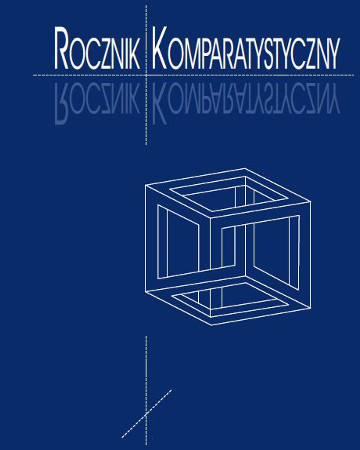





| Autorzy: |
Aleksandra
Kamińska
Uniwersytet Szczeciński |
| Słowa kluczowe: | melodramat Pixerécourt wzniosłość ludyczność widz bratobójstwo |
| Data publikacji całości: | 2020 |
| Liczba stron: | 12 (149-160) |
| 1. | Barré, Louis, red. Complément du Dictionnaire de l’Académie française. Bruxelles: Société Typographique Belge, 1843. |
| 2. | Corbin, Alain, Jean-Jacques Courtine, Georges Vigarello. Histoire des émotions. Dès Lumières à la fin du XIXe siècle. T. 2. Paris: Seuil, 2016. |
| 3. | Hartog, Willie-G. Guilbert de Pixerécourt, sa vie, son mélodrame, sa technique et son influence. Paris: Honoré Champion, 1913. |
| 4. | Kawka, Agnieszka Dorota. „Przeżycie, przestrzeń, obraz: publiczność a okoliczności epoki”. Napis 1 (1994): 153–167. |
| 5. | Kościesza, Iwona. „Sublime (w) historii. Wzniosłość jako narzędzie i przedmiot badań”. Pamięć i Sprawiedliwość 2.20(2012): 115–127. |
| 6. | Le Hir, Marie-Pierre. Le romantisme aux enchères: Ducange, Pixerécourt, Hugo. Philadelphia: John Benjamins Publishing, 1992. |
| 7. | Martin, Roxanne. „Avant-Propos”. René-Charles Guilbert de Pixerécourt. Mélodrames. T. III. Oprac. Roxane Martin. Paris: Classiques Garnier, 2016. 9–12. |
| 8. | Pixerécourt, René-Charles Guilbert (de). Mélodrames. T. III. Oprac. Roxane Martin. Paris: Classiques Garnier, 2016. |
| 9. | ------. Théâtre choisi. T. III. Paris: Tresse, Libraire-Éditeur, successeur de Barba, 1841. |
| 10. | Przyboś, Julia. L’entreprise mélodramatique. Paris: Corti, 1987. |
| 11. | Régaldo, Marc. „Mélodrame et Révolution française”. Europe 703–704 (1987): 6–17. |
| 12. | Szczęsna, Ewa, red. Słownik pojęć i tekstów kultury. Warszawa: Wydawnictwa Szkolne i Pedagogiczne, 2002. |
| 13. | Szpakowska, Małgorzata. „Melodramat, czyli potrzeba serca”. Dialog 1 (1989): 110–118. |
| 14. | Thomasseu, Jean-Marie. Le mélodrame. Paris: Presses Universitaires de France, 1984. |